Jean-Paul Sartre
Birth : 1905-06-21, Paris, France
Death : 1980-04-15
History
Jean-Paul Charles Aymard Sartre (21 June 1905 – 15 April 1980) was a French philosopher, playwright, novelist, screenwriter, political activist, biographer, and literary critic.
From Wikipedia, the free encyclopedia
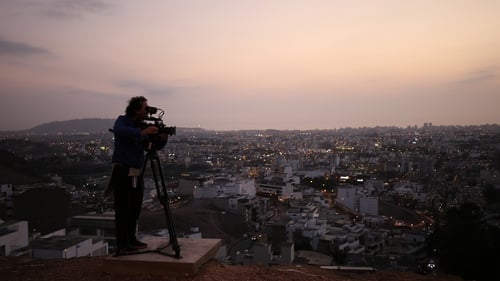
Himself (archivo footage)
An account of the childhood and youth of the Peruvian writer Mario Vargas Llosa, Nobel Prize for Literature in 2010, and how the hard experiences he lived during these formative years led him to write and publish his first major work when he was only 26 years old.
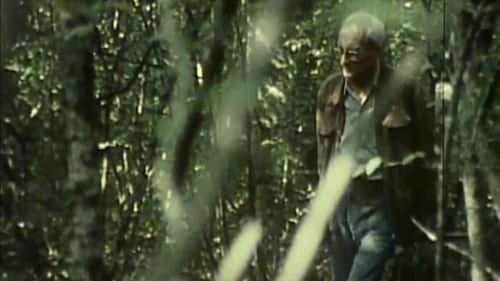
Self (archive footage)
Documentary about one of the greatest French thinkers of the twentieth century, Claude Lévi-Strauss (1908-2009).

Self (archive footage)
Hôtel La Louisiane is, at its core, a film about freedom and dignity. Freedom for those who wish to live in a place where they are able to feel inspired. Dignity for the hotel owner to stand by his promise to his father and keep their mission alive: to provide an affordable sanctuary for artists and students in search of fulfilling employment, which they certainly won’t find at other hotels. Freedom, too, to be in an environment of tolerance and rid of prejudice. This film is not just a story about a mythical setting in Paris; it portrays the microcosm of a lifestyle in which collective values reign supreme. A film where what’s real and true is placed above national borders or cultural barriers.

Writer
Three murderers. A journalist, a postal employee, a rich young lady. They're dead, but they prefer to call themselves "absent". One forgets they're still in a hotel. It's the nightmare of an infernal room that will imprison their existence forever, with their sins, desires and all they know about themselves.

Theatre Play

The Existentialist
A journalist (Liane Balaban) meets “Man of Today” (Paul Ahmarani) who, while a responsible citizen, is disengaged from greater society. He believes once he’s dead nothing more matters. As an experiment to see if she can turn his pessimistic view around, the journalist sends him on a journey of enlightenment to prove that the future does matter. Travelling the globe, he finds himself in surprising encounters with great minds in the arts and sciences. Starting with an unexpected poetry reading and conversation with experimental poet Christian Bök, Man of Today engages with architect Shigeru Ban, activist Francis Dupuis-Déri, philosopher Alain de Botton, artist Marlene Dumas, novelist Rivka Galchen, leading scientists and a ghost. Will the journalist succeed in turning a cynic into an optimist? Will it matter? What can one person do?

Writer
An adaptation of the J.P. Sartre story "Le Mur". What goes on in his mind and what happens outside when he has left only few more hours left to live. The existential dilemmas of a prisoner condemned to death from a repressive regime for his participation in a resistance movement and his friendship with the leader of this resistance. When all seems lost and he has already given up the most unlikely coincidence changes the course of events and his life.

At the height of the Vietnam War, a group of intellectuals begins a series of hearings in the People’s Palace in Stockholm. (Filmform)

How could the son of a graduate historian and a secretary, who liked to adorn himself with fast cars, fake eyelashes and expensive clothes, who wanted to become an artist, journalist or film director, become the "public enemy No. 1"?

Book
A political drama about the assassination of a leading politician. When Hugo comes out of jail, the Communist party has embarrassingly swung in a new direction, namely Hoederer's line. Now Hugo must die.

Writer
A political drama set in the fictional country of Illyria between 1943 and 1945, the story is about the assassination of a leading politician. The country, an ally of Nazi Germany, is on the verge of being annexed to the Eastern Bloc. Kaurismäki's TV adaptation of Jean-Paul Sartre's play Les Mains Sales (Dirty Hands) tells the story of Hugo (Matti Pellonpää) who has just been released from prison. Before going to prison, he has worked as a journalist at his party's newspaper. This timid journalist, who uses the pseudonym Raskolnikov, wants to advance in his career and gets his chance when Hoederer (Sulevi Peltola), the leader of the party, has to be eliminated.

Theatre Play

Original Story
Paris, 1955. Fraudster Georges de Valera, hiding from the police, with the help of a correspondent for the reactionary newspaper Sibilo, poses as Minister Dubov, who allegedly escaped from the Soviet Union. Sibilo's daughter explains to Georges the purpose of the planned action: to slander progressive journalists with the help of the false Dubov. De Valera, not wanting to become a participant in the provocation, goes into hiding. But instead they find another candidate for the role of Dubov...

Writer

Novel
Short film based on the novel by Jean-Paul Sartre.

Writer
Inès, Estelle, and Garcin are condemned to be together in a single room and soon start arguing and accusing each other.

An essay film about Jean-Paul Sartre and the French Existentialists, featuring Roland Barthes' last interview.

Himself
Michel Contat is Emeritus Director of Research at the CNRS, ITEM/CNRS/ENS and a specialist of Jean-Paul Sartre whose novels and theater he has edited in the Pléiade edition and about whom he has written several books. With Alexander Astruc, he made the film Sartre par lui-même (1976) and, with Antoine Burnier, co-wrote the script of Claude Garretta’s TV film Sartre, L’Age des passions (2006). As a journalist, Contat contributed literary columns for Le Monde since 1978, and as an amateur musician, he was the jazz columnist for the magazine Télérama. His most recent books are Pour Sartre (2006) and André Gorz; vers la société libérée (2009).

Story
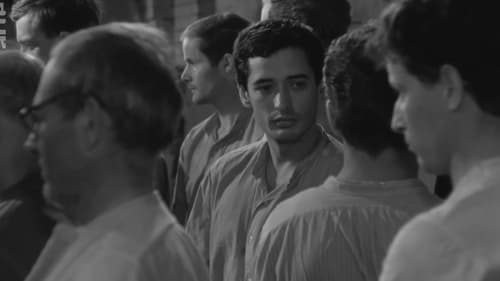
Writer
Prisoners await execution by firing squad when they are captured during the Spanish Civil War in this drama taken from the novella by Jean-Paul Sarte. Pablo is a loyalist jailed after he searches for his brother. An Irish mercenary and a Belgian physician are his cellmates. Flashbacks recall their lives before the war as they spend their last moments on Earth waiting for their date with death.
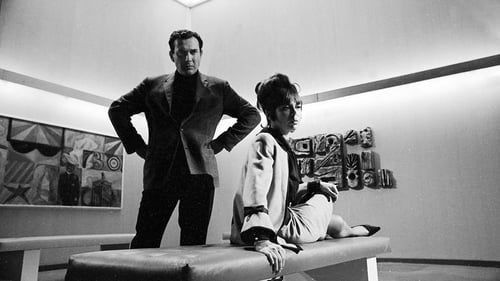
Writer
A 1964 BBC adaptation of Sartre's "No Exit."
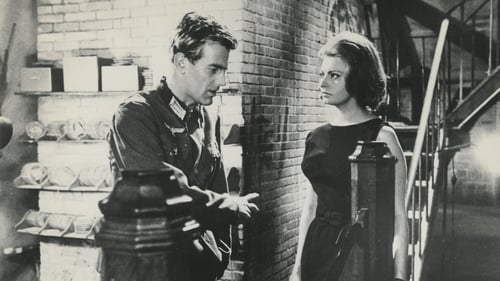
Theatre Play
A dying German magnate invites his youngest son and daughter-in-law home to discuss the future of the family's shipbuilding empire. There, the daughter-in-law stumbles upon a secret of the family's Nazi past.
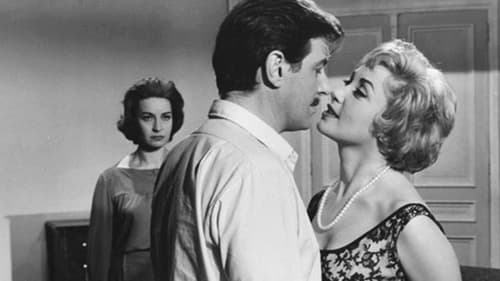
Author
"Hell is other people." Three recently-deceased persons are locked into a hotel suite together for all eternity. Adaptation of Huis clos, by Jean Paul Sartre.
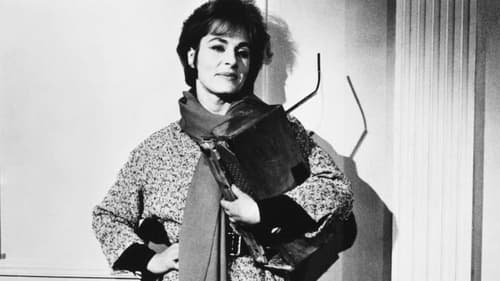
Story
The Valet (Manuel Rosón) enters a hotel room with Joseph Garcin (Morgan Sterne) in tow. The windowless room has a single entrance and no mirrors. Two women, Inès Serrano (Viveca Lindfors) and Estelle Rigault (Rita Gam), are then led in; afterwards, the Valet leaves and locks the door. Realising that they are in hell, the trio expects to be tortured; however, no torturer is forthcoming. While waiting, they strike up a conversation and discuss each other's sins, desires, and unpleasant memories. Adaptation of the play by Jean-Paul Sartre.

Writer
TV-Movie of the play by Jean-Paul Sartre.
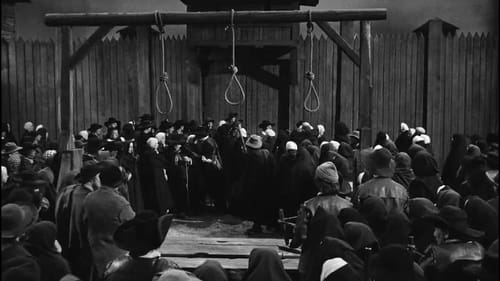
Screenplay
Salem 1692. The young Abigail, seduced and abandoned by John Proctor, accuses John's wife of being a witch in revenge. A series of tragic trials soon befall Salem as fear and suspicion blur the lines of reality.
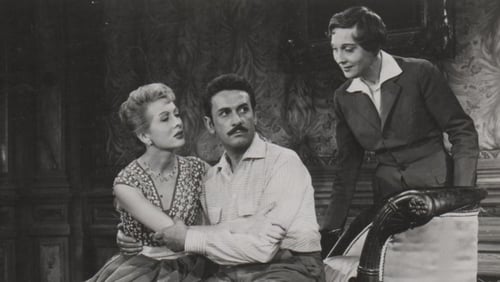
Writer
The scene is a tawdry hotel room in Limbo, where several damned souls are gathered. At first, the group fails to comprehend where they are or why they're there. When the horrible truth dawns upon them, they carp and snipe at one another, blaming everyone but themselves for their dismal fate.

Theatre Play
The scene is a tawdry hotel room in Limbo, where several damned souls are gathered. At first, the group fails to comprehend where they are or why they're there. When the horrible truth dawns upon them, they carp and snipe at one another, blaming everyone but themselves for their dismal fate.

Story
The first to die in an epidemic of meningitis in Vera Cruz is a French tourist. His wife Nellie, detached and indifferent, feels little grief and realizes that her coldness is her own doom. Over the next two days, she is attracted to George, a local drunk who does odd jobs for brothels and dances grotesquely for tourists in exchange for drinks. George has his own dark secret, a tragedy he caused that leaves him with a death wish. In assisting the local doctor to cope with the epidemic, these two emotional cripples enable each other to rediscover reasons to live and to love.

Theatre Play
Fred, the nephew of a senator,has murdered a Black man on a train. The two only witnesses are Lizzie McKay, a prostitute from New York, and Sidney, a colored man. Fred decides to seduce Lizzie in order to make her give false evidence according to which Sidney has attempted to rape her. The uncle also puts pressure on the young woman. After much hesitation, Lizzie finally accepts but Sidney, who has nearly got lynched, takes refuge at her home...

Self (scenes deleted)
Nobel-prize-winning author, social justice crusader, anti-colonialist, adventure traveler, musician, and one-time Communist: André Gide was a larger-than-life character who dominated French letters from the turn of the 20th century to his death in 1951. Directed by Marc Allégret, with whom Gide traveled extensively in French Equatorial Africa, the With André Gide was made in the year leading up to the writer’s death.

Theatre Play
A young intellectual, Hugo, joins the Communist Party out of a sense of idealism, only to see his principles manipulated by party leaders. He is given the assignment of killing Professor Hoederer, a party deviationist. However, he grows to admire the man and begins to have doubts about morals and revolutionary politics. But jealousy - Hugo thinks Hoederer has made love to his wife, Jessica - takes matters out of the political realm.

Self
Variations on the cultural and intellectual explosion in the Saint-Germain-des-Prés district in 1946.

Self (archive footage)
As the title of this French documentary indicates, Ce Siecle a 50 Ans examines the 20th Century at its halfway point. Utilizing the archives of several European film reserves, director Denise Tua offers a fascinating mosaic of the people and events that shaped the years 1900 to 1950. Complementing the vintage film clips are three dramatized sketches, delineating the romantic customs of three different points in time. These sketches are inadequately performed, and can easily be ignored. Ce Siecle a 50 Ans both preserved and provided celluloid material for scores of future documentaries.

Self
Documentary filmmaker Nicole Vedre's first semi-fictional feature was released in France in 1949 as La Vie Commence Demain. The film made it to the U.S. in 1952 as Life Begins Tomorrow. Made in cooperation with UNESCO, the film speculates on the future of mankind after the advent of Atomic Energy. Many prominent French artists and intellects contribute to the narration: Jean-Pierre Aumont plays The Man of Today, Andre Labarthe is the Man of Tomorrow, and Jean-Paul Sartre, Daniel Agache, Jean Rostand, Le Corbusier, Pablo Picasso and Andre Gide are respectively seen as "The Existentialist," "The Psychiatrist,' "The Biologist," "The Architect," "The Artist" and "The Author" (talk about typecasting!) Film clips of hospitals, schoolrooms, scientific laboratories, and even nightclubs are woven into Vedre's fascinating tapestry.
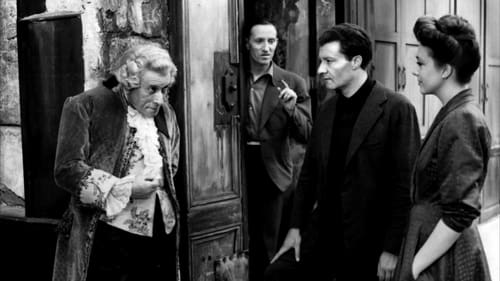
Writer
"Les jeux sont faits," is a fantasy film based on a screenplay by French existentialist philosopher Jean-Paul Sartre. A society heiress and a resistance fighter are tragically killed at the same moment and meet in the afterlife. They are offered a second chance at life if they can prove their love is real or be doomed to roam the earth as ghosts.
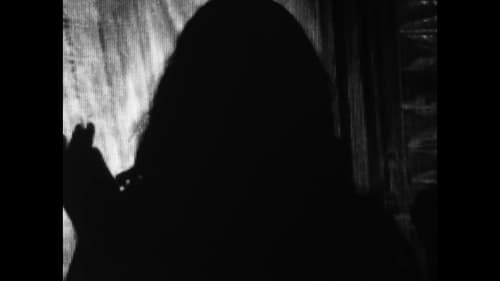
Sartre















